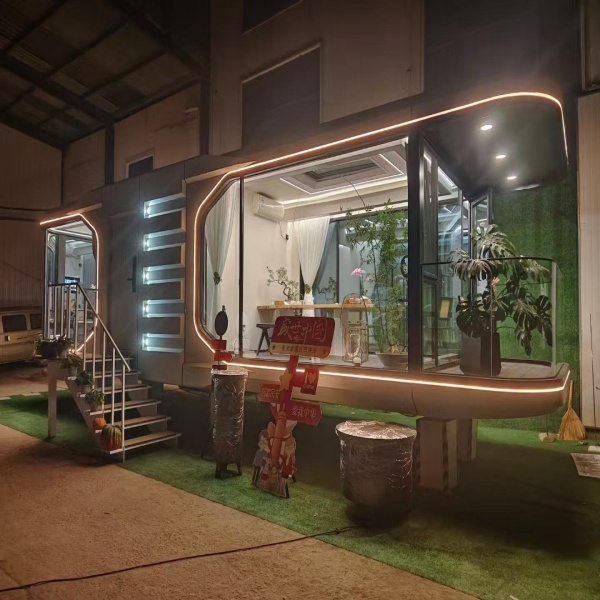-
E-mail
Austin120521@outlook.com -
E-mail
sales@jujiuhouse.com -
Telephone
+86-17864099991 -
Telephone
+86-17854044442
- Chinese
- French
- German
- Portuguese
- Spanish
- Russian
- Japanese
- Korean
- Arabic
- Irish
- Greek
- Turkish
- Italian
- Danish
- Romanian
- Indonesian
- Czech
- Afrikaans
- Swedish
- Polish
- Basque
- Catalan
- Esperanto
- Hindi
- Lao
- Albanian
- Amharic
- Armenian
- Azerbaijani
- Belarusian
- Bengali
- Bosnian
- Bulgarian
- Cebuano
- Chichewa
- Corsican
- Croatian
- Dutch
- Estonian
- Filipino
- Finnish
- Frisian
- Galician
- Georgian
- Gujarati
- Haitian
- Hausa
- Hawaiian
- Hebrew
- Hmong
- Hungarian
- Icelandic
- Igbo
- Javanese
- Kannada
- Kazakh
- Khmer
- Kurdish
- Kyrgyz
- Latin
- Latvian
- Lithuanian
- Luxembou..
- Macedonian
- Malagasy
- Malay
- Malayalam
- Maltese
- Maori
- Marathi
- Mongolian
- Burmese
- Nepali
- Norwegian
- Pashto
- Persian
- Punjabi
- Serbian
- Sesotho
- Sinhala
- Slovak
- Slovenian
- Somali
- Samoan
- Scots Gaelic
- Shona
- Sindhi
- Sundanese
- Swahili
- Tajik
- Tamil
- Telugu
- Thai
- Ukrainian
- Urdu
- Uzbek
- Vietnamese
- Welsh
- Xhosa
- Yiddish
- Yoruba
- Zulu
- Kinyarwanda
- Tatar
- Oriya
- Turkmen
- Uyghur

Buy folding shipping container house
Pros and Cons of Buying a Folding Shipping Container House
Folding shipping container houses have gained traction as an innovative housing solution, but they're not without complexities. As a professional who has been involved in this niche, I've witnessed both the rewarding aspects and the hurdles. Let’s delve into the practical insights you need to know before you make a purchase decision.
Understanding the Basics
When we talk about a folding shipping container house, it’s crucial to understand what you're getting into. These structures, often marketed as mobile and cost-effective, require careful considerations beyond the glossy brochures. They can be an excellent solution for some, yet completely unsuitable for others.
An essential misconception is their portability. While they indeed fold and compress, the logistics aren’t always as simple as they seem. Transporting and unfolding a unit might involve hidden costs and effort. From personal experience, aligning this with your location needs is the first step toward a satisfying experience.
Moreover, climate suitability is often understated. In one instance, a buyer was ecstatic about the price and speed of setup, only to face challenges with insulation during varying seasons. It’s vital to match the material’s capability with your regional weather conditions.
The Role of Quality in Choice
Quality cannot be overstated. Some manufacturers promise the moon but deliver subpar durability. When examining suppliers like SHANDONG JUJIU INTEGRATED HOUSING CO., LTD, whose website is jujiuhouse.com, it's evident that trust in R&D and production standards plays a pivotal role.
Jujiu Housing, a company with a strong foothold in the industry, integrates rigorous testing and design excellence. The structural integrity of their containers emerges from comprehensive engineering, a vital feature to prevent incidents like leaks or structural warping.
Their commitment to quality ensures that their folding shipping container houses meet or surpass client expectations, reducing the likelihood of unexpected repairs or replacements.
Customizing for Usability
Personalization is another factor that can elevate the experience of owning a folding container house. While mass-produced units come ready-to-go, tailoring them to your specific needs can transform usability dramatically.
From personal anecdotes, I recall a project where customizing internal layouts and external finishes based on client’s lifestyle was the game-changer. Options from Jujiu Housing allow for customization without compromising the build's integrity.
Additionally, the role of interior design cannot be ignored. Thoughtful space allocation and functional add-ons like solar panels or eco-friendly fixtures can enhance both sustainability and comfort.
Installation and Set-Up Challenges
Regardless of the manufacturer, set-up involves more than just a manual and some tools. Professional installation is recommended to avert any misalignments or structural faults. In certain cases, when self-installed, overlooked load-bearing calculations have led to structural inflexibility.
My work with clients showed that engaging professionals from companies like Jujiu can make a significant difference. Their expertise in handling logistics and installation ensures a seamless transition from delivery to occupancy.
Also, prepping the site is paramount. Ensuring a leveled foundation and accessible utilities can secure longevity and efficiency in use. A colleague once overlooked these details, and the resulting costs were a bitter lesson.
The Financial Aspect and Long-Term View
Finally, considering the financial implications from both short-term and long-term perspectives is crucial. The initial cost is only part of the equation. Maintenance, potential repairs, and upgrades add to the lifecycle expense.
Despite some upfront savings, various owners have realized that investing in quality, as offered by Jujiu, pays off in reduced long-term maintenance. Value retention is another benefit; quality builds tend to maintain or even increase in equity.
Balancing the initial purchase price with expected upkeep can offer a clearer picture of overall investment value. So, when you think of getting a folding shipping container house, weigh these factors carefully. After all, informed decisions pave the way for satisfying outcomes in innovative housing journeys.
Related products
Related products
Best selling products
Best selling products-
 Detachable Design Prefabricated Container House Portable Modular Office Building Folding Container House
Detachable Design Prefabricated Container House Portable Modular Office Building Folding Container House -
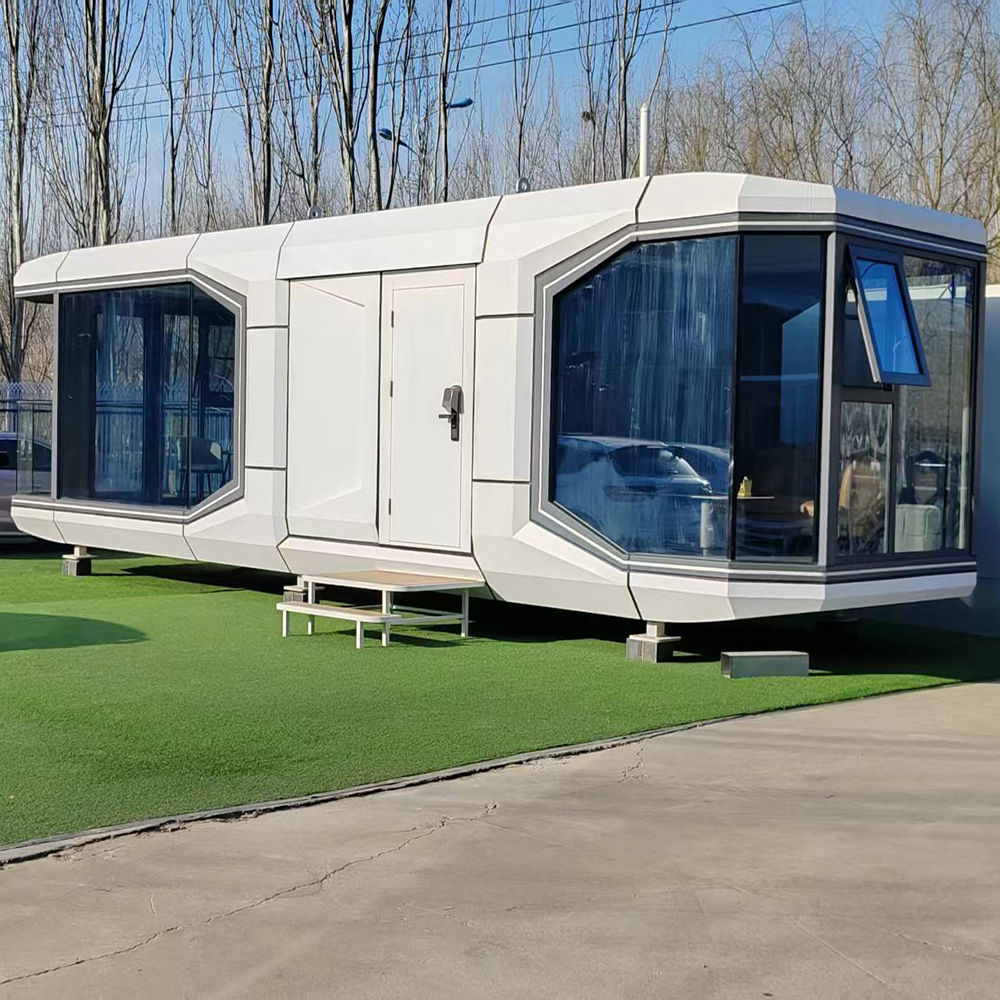 Luxury High Quality 2 Bedroom Container Home Prefabricated Steel Space Capsule for Office Shop Hotel or Outdoor House
Luxury High Quality 2 Bedroom Container Home Prefabricated Steel Space Capsule for Office Shop Hotel or Outdoor House -
 Movable Prefabricated Container House Villas Modular Portable Homes 1 Bedroom Container House Offices Apartments
Movable Prefabricated Container House Villas Modular Portable Homes 1 Bedroom Container House Offices Apartments -
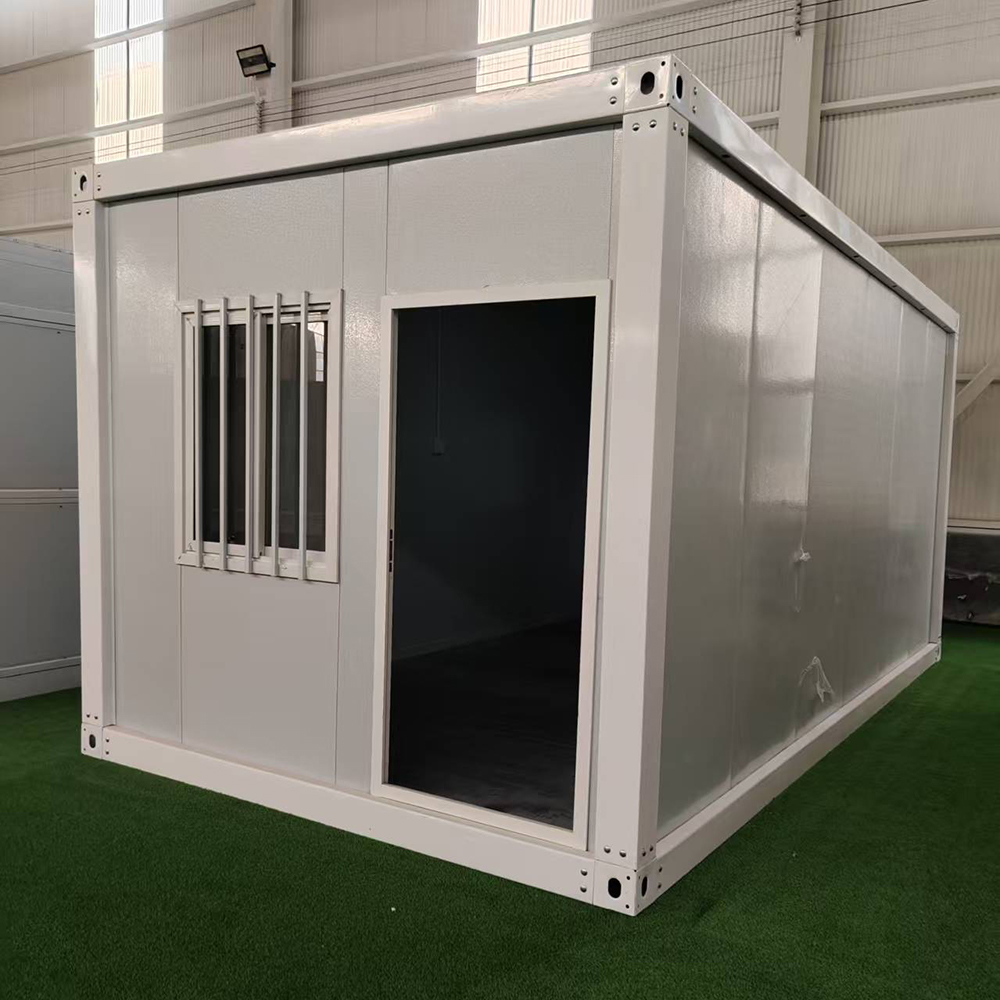 Folding Container Moving House Modular Office Container House Prefab Container for Outdoor Use
Folding Container Moving House Modular Office Container House Prefab Container for Outdoor Use -
 The foldable container house with side wing design can be quickly set up and is suitable for various environments.
The foldable container house with side wing design can be quickly set up and is suitable for various environments. -
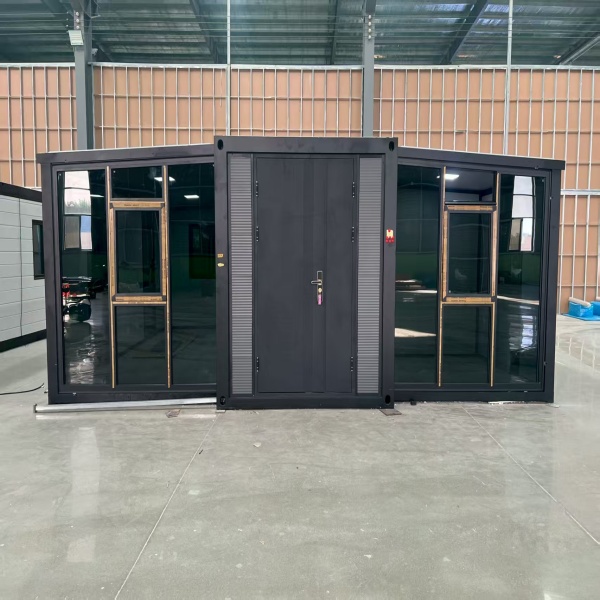 Customizable Office Mobile Home with Flat Roof and Double Wing Expansion Box, Convenient Container
Customizable Office Mobile Home with Flat Roof and Double Wing Expansion Box, Convenient Container -
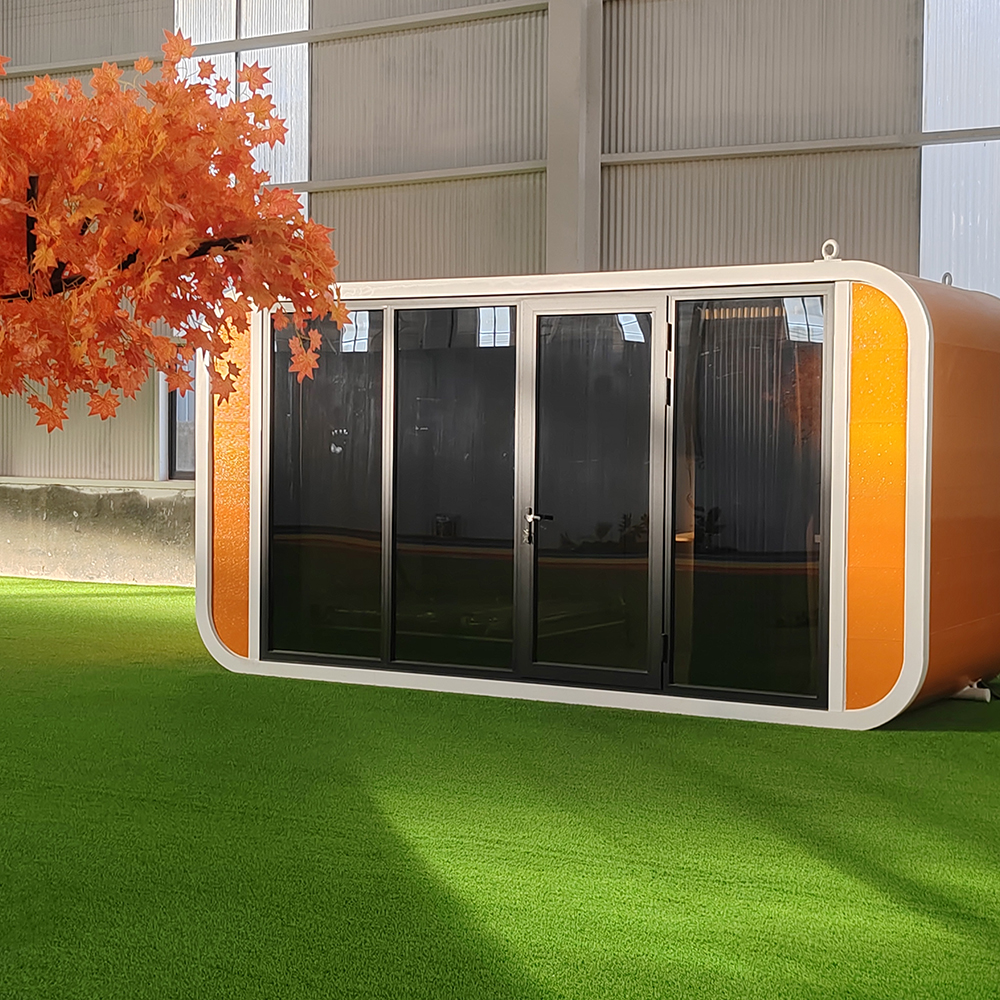 Luxury Prefabricated Living Container House Modular Glass Tiny House Prefab Container Home Apple Cabin
Luxury Prefabricated Living Container House Modular Glass Tiny House Prefab Container Home Apple Cabin -
 A container house with a terrace and double-wing folding design, suitable for various purposes such as offices, meeting rooms, living rooms, etc.
A container house with a terrace and double-wing folding design, suitable for various purposes such as offices, meeting rooms, living rooms, etc. -
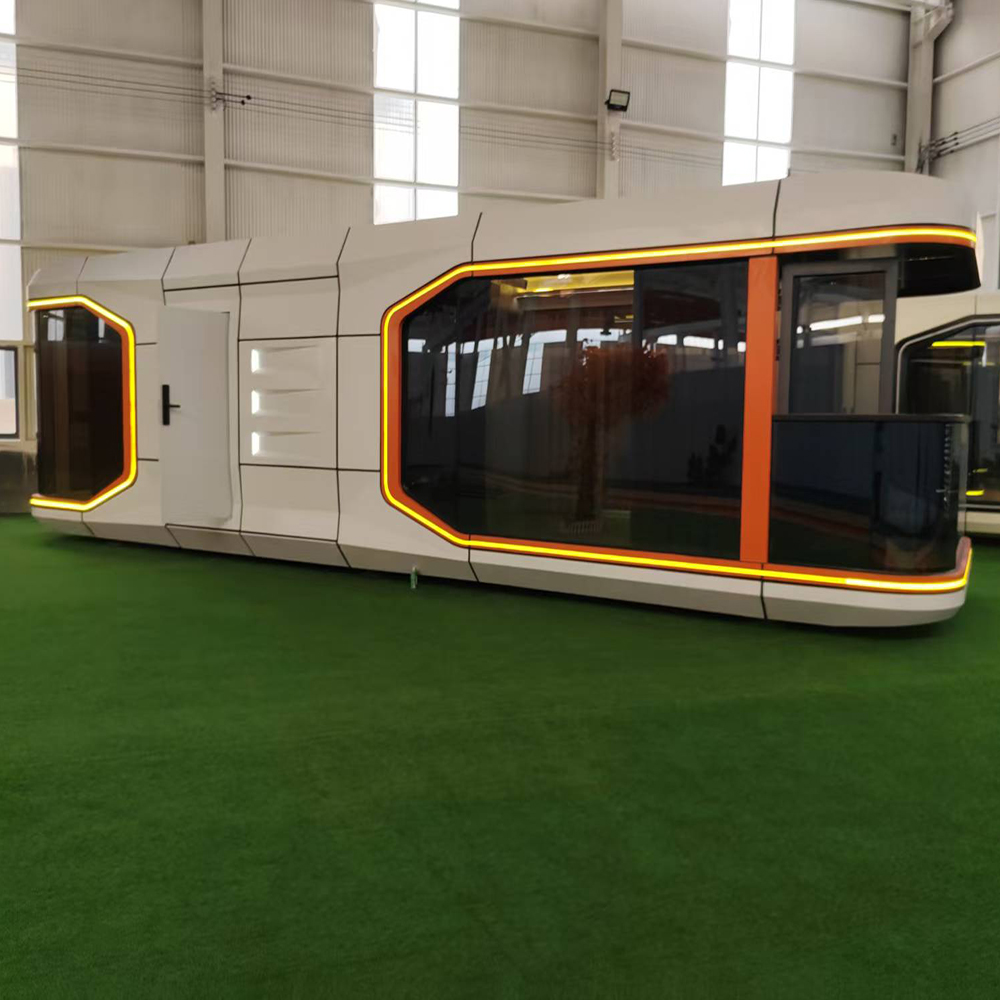 Standard Modern Camping Pod Space Prefabricated Portable Mobile Capsule Room Hotel Bathroom Prefabricated Spaceship House
Standard Modern Camping Pod Space Prefabricated Portable Mobile Capsule Room Hotel Bathroom Prefabricated Spaceship House -
 Luxury Foldable Two Story Container House for Glamping Resort and Villa Hotel
Luxury Foldable Two Story Container House for Glamping Resort and Villa Hotel -
 Dual-Wing Folding Container House: Fast Assembly, Space-Saving & Multi-Scene Adaptable
Dual-Wing Folding Container House: Fast Assembly, Space-Saving & Multi-Scene Adaptable -
 Reasonable Price 1 Bedroom Modular Container House Folding Container Home for Villa or Apartment Use
Reasonable Price 1 Bedroom Modular Container House Folding Container Home for Villa or Apartment Use
Related search
Related search- China home container house prefab container house luxury expandable container house
- Buy fold out container house
- space house capsule
- China movable space capsule homes
- apple cabin house
- prefabricated containers house 20ft
- expandable house container
- folding shipping container house
- Buy container house prefabricated
- Buy prefabricated container house









